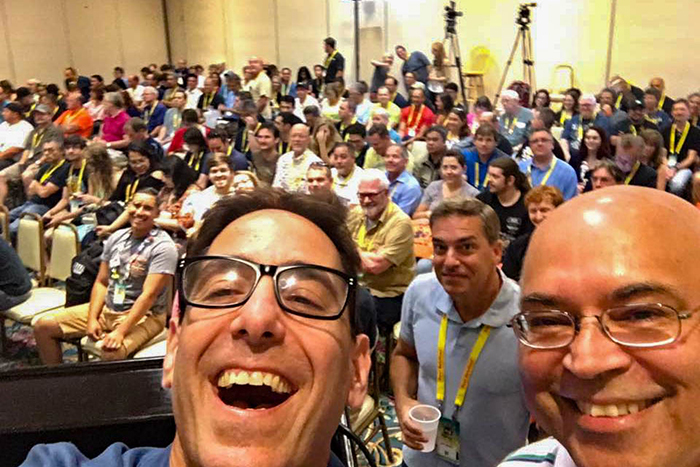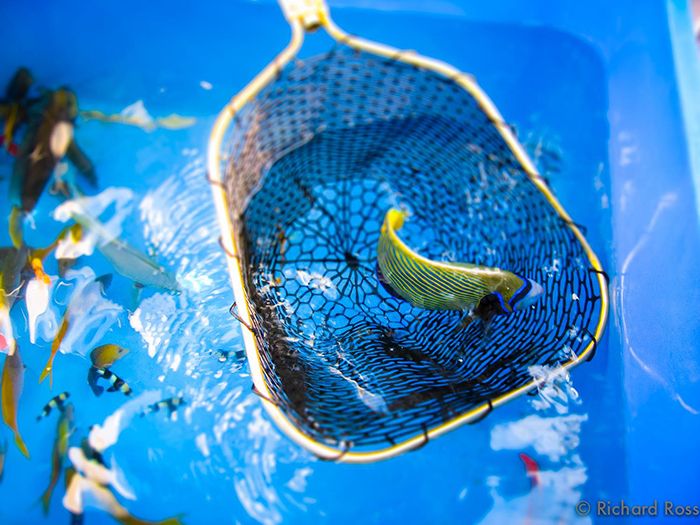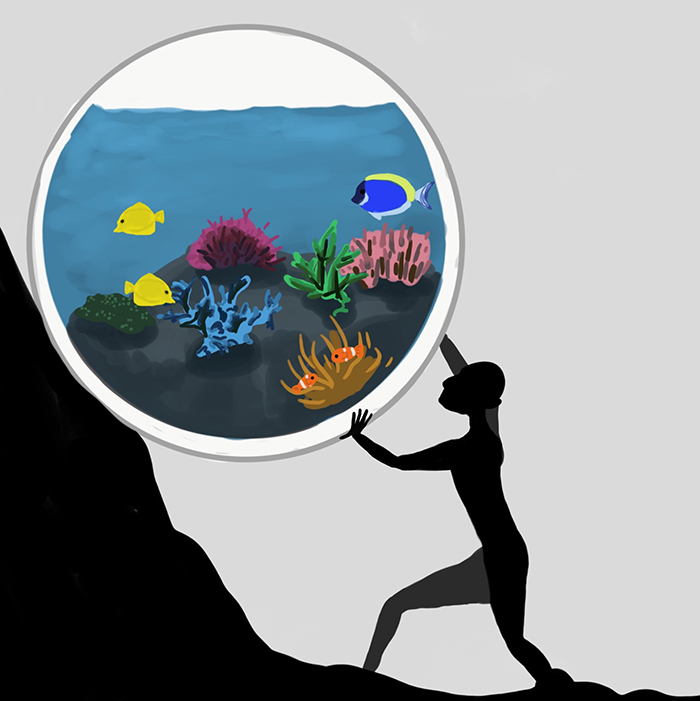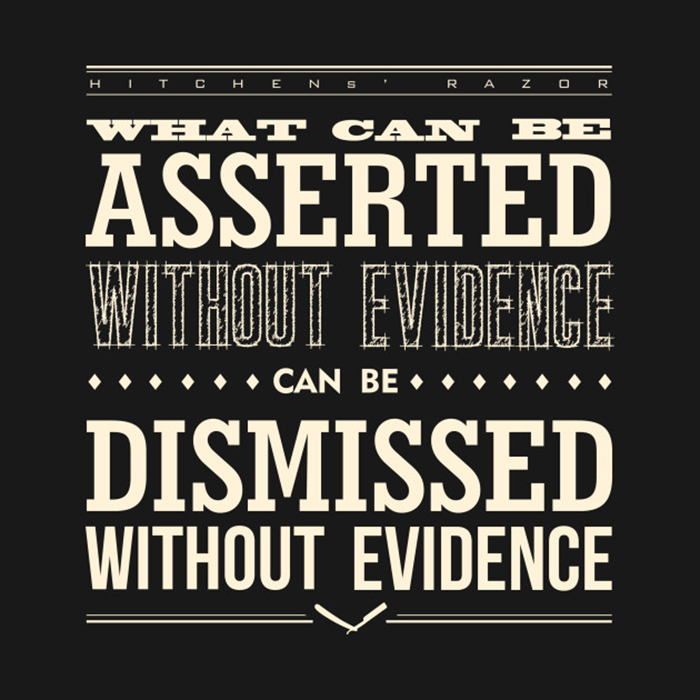From Reefs Magazine
By Rich Ross
Honest conversation about contentious issues has always been a mainstay in my personal and professional life. I have prided myself on hitting those conversations head on…until about 2 years ago when some people involved in the marine aquarium world tried to hurt me professionally and personally over something that had nothing to do with aquarium keeping. As a result, I pulled back from head-on kinds of conversations. I am not going to go into the details here because they aren’t important – though I did, in the process, watch a few bridges burn, which is something I normally avoid, but which felt surprisingly good in this context.
The entire experience made me keenly aware of the fact that, though I pride myself on direct communication, I was vulnerable to the potential repercussions of honesty. So I pulled back a bit, all the while wondering, what I would say if I really wasn’t worried about repercussions? What would I say if I was truly free to say what I really wanted to say? What I would write to the reef keeping world if I were dying and had nothing to lose?
I haven’t acted on this idea since, because everything I wrote felt bitter, and no message coated in bitterness can be heard, especially when there is already too much bitterness in the world. Now time has passed, and I think I am ready to attempt to communicate some messages that might be hard, not from a place of anger, fear, and bitterness, but from my passion and love for the amazing hobby, trade and industry* that have leant so much beauty and satisfaction to my life.
Grab some popcorn, here we go.
Difficult Message No.1: We are Legion; Your Reefing Community isn’t the Only Reefing Community
It is natural to think that the communities we frequent represent the entirety of the reefing community, and thus that everyone thinks the way the people with whom we associate think. Conference attendees tend to think that everyone in the hobby, trade and industry knows what goes on at those conferences. People on forums tend to think that their forum contains all knowledge, and attack new members with different ideas that don’t conform to the local norm.

Don’t be a lone coral spawning, make sure that ideas are shared across the broader reefing community. Photo by Rich Ross, 2018, California Academy of Sciences.
The truth is, there are hundreds, maybe thousands, of reefing communities out there, each with all kinds of information and all kinds of experience, and that experience is not at all equal. Some of the advice advocated on Facebook reef groups is decent…and some will make your skin crawl in its regressive incorrectness. We need to find better ways to cross-pollinate, to stop inbred information from taking hold, and to get that good information and experience to the people looking for it.
Some groups actively prevent the needed cross-pollination. Blogs won’t post information that appears on other blogs, and some online forums don’t allow links to other forums. I get trying to maximize profit and presence, but doing that by stopping the flow of information seems to be the exact opposite of what these organizations say their missions are. If a competing site has information that will help your members stay in the hobby longer or help increase animal health, how can we possibly cut off that information and feel good about it?
Difficult Message No. 2: Let’s Get our Act Together; Organization is Crucial
Right now, there is no authority in the hobby, trade or industry. There is no peer review process, so there is no way for people to know which authors to trust. There are no accepted best practices. There is also no practical way to call out the bad players, because all too often an attack on one is seen as an attack on all. Given the scrutiny our hobby, trade and industry are getting from activist groups, now more than ever, people need a place to go to find out what the reality is.
With that said, there are some organizations who are attempting to fill that vacuum. For the hobby, in the US, we have MASNA, the Marine Aquarium Society of North America, the organization that puts together MACNA, The Marine Aquarium Conference of North America. MASNA is starting to put together useful online resources and position papers to which we can all refer. MASNA exists to help clubs and supports programs like MASNA speaks, which helps member clubs fund guest speakers. For MASNA to really make a difference more individuals need to become members and, more importantly, more clubs have to become involved members. Join up as a club, business or an individual – it is inexpensive and worth it.
For the trade and industry, there are some pet organizations that do their best to include saltwater aquatics, but generally this is difficult as saltwater aquatics is so specialized and niche compared to say, keeping a dog or cat. One attempt to give our industry a voice, the Marine Aquarium Council (MAC), offered education and certification for different kinds of facilities that dealt with marine animals. While it crashed for various reasons, it’s relevance is proven by the fact that 10 years later, being MAC certified still resonates enough that some vendors still offer MAC certified products. The need for this type of organization persists; it can lend legitimacy to the business of marine ornamentals, actively promote animal welfare and most importantly, proactively head off attacks on the industry.

There is a plethora of aquarium speakers and authors, but how do you know which ones to trust? Photo by Rich Ross.
At least once a year, there are last minute pleas to help the aquarium fishery in Hawaii deal with attacks by activists that are based on emotion in spite of really robust counter indicative data. It has been clear for years that these attacks are going to keep coming, that they are going to gain momentum and spread, but the hobby, industry and trade as a whole are failing to be proactive on this front. With that said, PIJAC, the Pet Industry Joint Advisory Council’s Aquatic Defense Fund, is making strong efforts; but to be truly effective they need more comprehensive support. All of us who care about the industry need to step up and present an united front that we can all support.
Difficult Message No 3.: We are in this Together; Let’s Stop Slitting Each Other’s Throats; Don’t Get Personal
Every schoolyard bully learns that the easiest way to raise his own status is to lower the status of someone else. Hopefully, as adults we figure out that this is also the least effective way to raise one’s status because it is a raising based on nothing, resulting in a short lived status bump which eventually reflects poorly upon us. Instead of bashing others, promote what is good about you or your group. No one really wants to be part of something because it is less bad than something else – we want to be part of things that are good. There is plenty of room for everyone, so support each other instead of tearing each other down; a rising tide raises all boats.
And by all means, never go personal. If you are involved in a contentious interaction don’t fall prey to the temptation to attack someone personally. Not only does that not raise your status, but it cheapens the discourse and removes the possibility of bringing about change. And, it really hurts people…which isn’t cool.
In the trade, we often see these status games when there is talk about a certification program. Instead of talking about how to make it work, we get a lot of discussion about how organizations suck, how they sucked in the past, and how they will suck in the future. This has generally killed any attempt to bring any kind of sorely-needed unity to the landscape.
Difficult Message No 4: We All Need to Pitch In; Stop Asking Hobbyists to Fix It
Some in the trade and industry have made a habit of asking hobbyists to contribute to campaigns for trade or industry issues, but this seems like the wrong way to deal with problems. Sure hobbyists can help, but when they don’t have skin in the game – it really isn’t their fight. The idea that ‘the hobby might be shut down’ is too often used as a rallying cry to raise money for a project. Hobbyists aren’t responsible for the way in which animals are collected and imported. Hobbyists are customers, and if the hobby goes away, most hobbyists will move onto another hobby, while people in the trade/industry will go out of business and have to find a new livelihood. Seems like the people in the trade and industry have the real incentive to address the problems that impact their bottom line.
Difficult Message No 5: We Need a Mechanism for Calling Out the Bad Players
One of the major problems with the lack of a governing body in the trade and industry is that there isn’t a mechanism for calling out the bad players. As a result, more people endure terrible experiences, even when those “in the know” have already learned a person or organization is problematic. Vendors not on the up-and-up still get customers. People found guilty of import violations continue importing with no way for the average consumer to tell if they have improved. Of course, calling out the bad players can also be prone to abuse so we need to make sure any calling out is justified.
In the hobby, local clubs generally know if a local store should be avoided. For example, there is one store near me that the regional reef clubs know to stay away from because they do things that put animals’ lives in jeopardy. But there is no mechanism for disseminating that information to the wider reef community.

A widely accepted best practices policy across the hobby, trade, and industry would help make sure animals are given the best possible treatment, give us a place to point people with questions, and give us a useful way to approach anti trade claims. Photo by Rich Ross.
Most hobbyists are not in local clubs and tend to buy based on price and ease. This bad store is doing a booming business and has been for a long time…even when other reputable shops closed due to economic pressure. Lots of sales and lots of re-sales add up, even if the store is burning out hobbyists…there are always new buyers that don’t know better. Let’s find a way to help them know better.
Difficult Message No.6: Let’s Stop Giving the Anti-Aquarium People Ammo
When some vendor does something dumb, like throwing away hundreds of dead yellow tangs at once, it looks bad…even if there are totally understandable reasons for the losses. People who want to shut down the hobby, trade and industry use this ammo to paint the hobby, trade, and industry in a bad light. I am not saying that we should be secretive about losses, rather, we need to promote better practices so that loss of animals is minimized. We need to be honest about losses in the chain of custody so we can learn from our mistakes and eliminate the skeletons in our hobby/trade/industry closets.
Difficult Message No.7: Your Industry, Trade, and Hobby is Bigger Than Your Business or Your Tank
Almost everyone involved in reef aquariums says they love the world’s reefs. Those reefs are in real danger, and since we profit from them (either in hobby joy or in income) we should all be giving back and supporting projects that make the ocean, and our take from the ocean, more sustainable.
Currently, I see some individual groups trying to fundraise, and the responses tend to be rather anemic. I believe this is because the fundraising goal and project is often vague – I recently saw a fundraiser that said something like “raise money to help the Hawaiian aquarium trade, trust us, the money will go to where it is needed”. Um. No. This is another example where working together is power while working alone is frustrating.
If we come together collectively, identify specific projects, with simple but concrete attainable goals, and measurable success markers, THEN fundraise, we can fund the crap out of that project. As the goals are met, and the success markers are reached, we can not only promote our successful efforts, but we can give back to the ocean that we all say we love.
Difficult Message No.8: We Needn’t Emulate Sisyphus; Push Smarter, Not Harder
Having been involved in the hobby/industry in some fashion since 1975, I have seen a lot of things come and go, only to come back again. Sadly, it feels like the bad ideas are the ones that keep coming back. As a community we often have the same discussions over and over and over again but barely move the conversation forward. People get tired of pushing boulders, and stop participating in discussions.

Let’s look for ways to spread information to everyone, instead of individuals rolling the same kinds of rocks up different hills forever. Image by Kalin Ross.
The first installment of Skeptical Reefkeeping in 2010 dealt with Ich, but drew on treatments established the decade before. Nothing had substantially changed in that time, and not much has changed since. Yet people are still talking about garlic, ginger and miracle products with no evidence to support their claims (more on evidence later.) This is just a waste of everyone’s time, we don’t have time for it, and continually trying treatments that we are pretty sure don’t work certainly isn’t good for the animals. We need to be getting better, not barely staying in the same place.
We need to stop reinventing the wheel; instead, to mix metaphors, and on the shoulders of the giants that have come before us, and finally push the boulder over the hill with well documented best practices that we can all build on to make fish and coral keeping better.
Difficult Message No. 9: Stop Giving ‘Airtime’ to Things Presented Without Evidence
We all get caught up in the idea that showing why something doesn’t work is fun. A lot of us in the hobby and trade and industry like these “does it really work” puzzles. The truth is, that it isn’t up to us to show a claim/product doesn’t work, it is up to the person making that claim to show that it does work. Employ what is known as Hitchens’s Razor – “That which can be asserted without evidence, can be dismissed without evidence”. Engaging people in discussion of a claim for which they have provided no evidence is not only a waste of time, but gives the claim the flavor of credibility.

The person making the claim is the person who needs to support that claim, and if they can’t, there is likely little reason to give the claim much weight. Image from Google.
If a person is interested in doing the work to support their claim, then there is a real opportunity for one or the other of you to learn something. If they are not interested in doing the work, if they are not interested in genuine discussion, spend your time helping someone who is. You’ll be happier, they will be happier, and ultimately the hobby benefits.
Difficult Message No. 10: No, I’m Not Dying
Even though I am not dying (but feel free to spread that rumor) I am glad I wrote this. I have no doubt that there are people who will disagree, perhaps vehemently, with one or more of these messages. And that’s okay.
I love this hobby, and the trade and the industry. They have all given me so much joy personally and professionally. I want them all to continue into the future and to thrive, grow, and do good in the world. And if any one of these difficult messages helps them to do so, then it will have been worth the two years of mulling all of this over, and the risk in sharing them here. And to all the people who ARE doing tireless work in these areas, but weren’t mentioned in this article, thank you. If people ask you to support your claims about the work you are doing, please don’t get mad at them – help them help you by giving them the info they need. I hope this article can help put wind in your sails – thank you for your efforts.
Notes:
*While the terms “hobby, trade, and industry” are often used to mean pretty much the same thing, there are important differences. The hobby is what people do in their spare time for fun, you know, reef keeping. The industry is the production of goods used by those in the hobby. The trade is the collection and transport of animals to be sold for the hobby. They are linked, but they are different.
Special thanks Elizabeth Palomeque and Chris Maupin for their help, and to Jem Welsh for his prooffing skills.